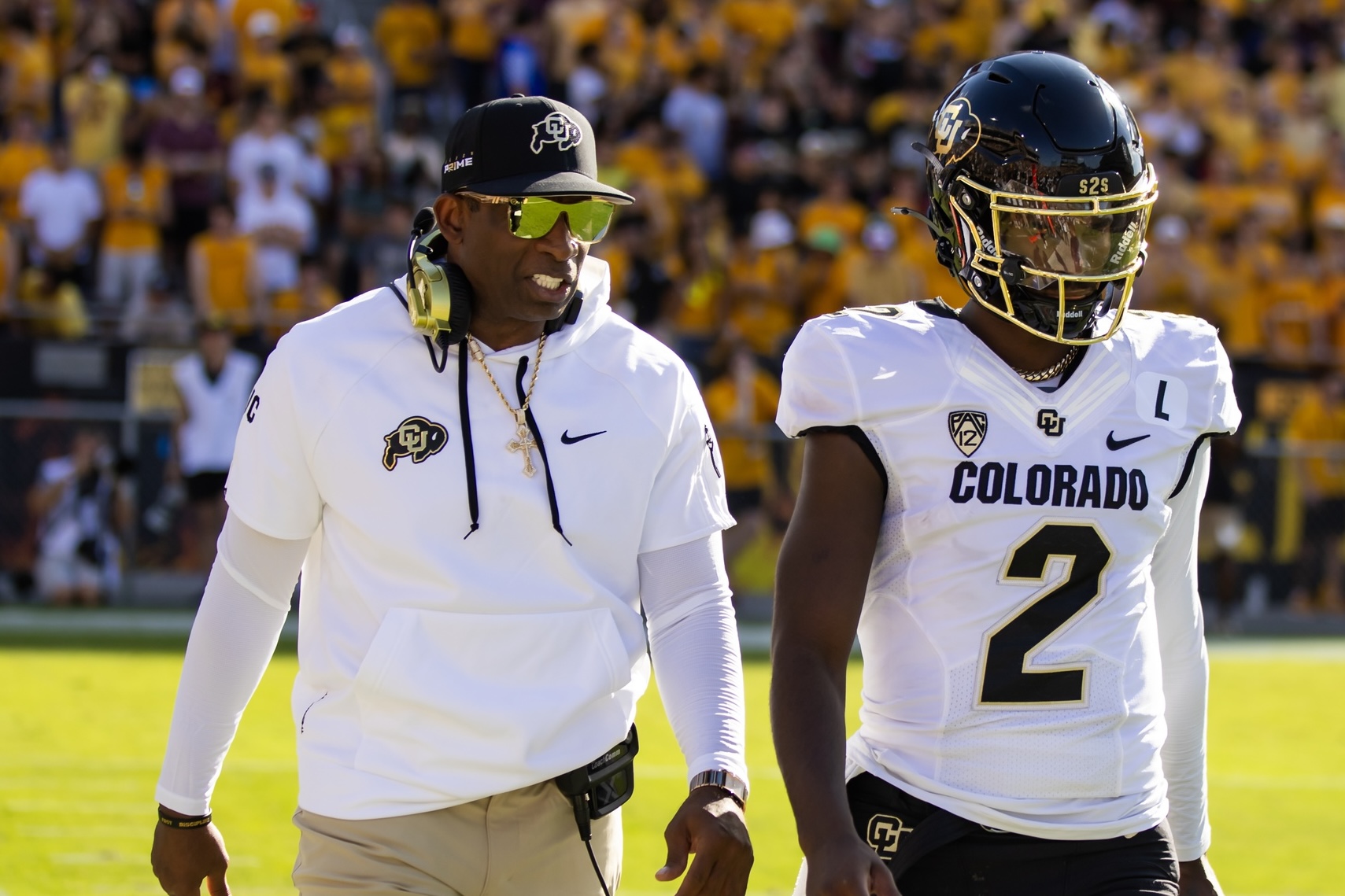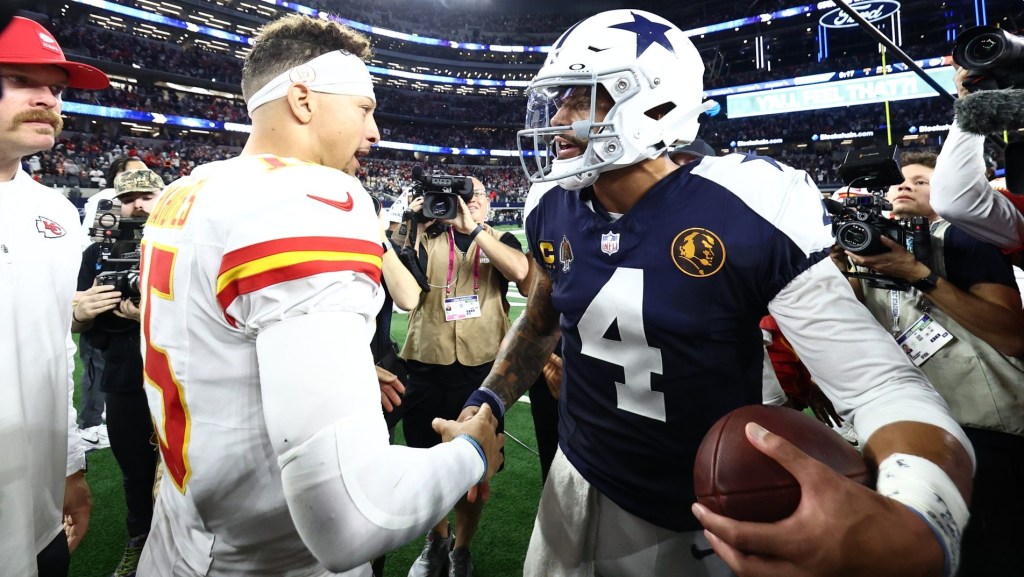Colorado has become the latest Power 4 university to cut ties with its official NIL (name, image, and likeness) collective, as athletic departments nationwide prepare for the impact of the House v. NCAA settlement, which should be finalized later this year.
Fresh off the football team’s Alamo Bowl appearance and Travis Hunter’s Heisman Trophy, Colorado is changing its strategy in the NIL era—less than 10 months after launching the 5430 Alliance.
“We are restructuring our NIL procedures in order to be prepared for the changes to come,” Colorado athletic director Rick George wrote in an email to fans that was delivered Monday morning and reviewed by Front Office Sports.
The House v. NCAA settlement will allow schools to pay athletes up to $22 million annually—total, across all sports programs—through revenue-sharing. Athletes will still be able to make money from NIL deals, and schools could choose to keep working with a collective to help facilitate funds beyond that $22 million annual sum. But players will be able to get paid directly by their schools, which hadn’t previously been the case.
George called the NIL decision a “proactive move” that ensures that “those who want to support CU student-athletes and programs can give to one convenient place.”
Hunter and Buffaloes quarterback Shedeur Sanders were two of college football’s top NIL earners in 2024, thanks to deals with major brands like Adidas and Nike, among others. It’s unclear exactly how much NIL money the stars earned. In December, Deion Sanders Jr., Shedeur’s older brother who did not play for Colorado, said Hunter does not receive money from Colorado’s NIL collective, and instead donates his own earnings from other deals to help pay other Colorado players. Colorado head coach Deion Sanders is set to return for a third season in Boulder in 2025.
With the shift, George’s email offered new directions for interested donors, who he said should consider “financially investing” in Colorado athletics through donations to the Buff Club’s AD Excellence Fund or Sport Excellence Fund, “which makes giving to third-party collectives like the 5430 Alliance unnecessary.” He said donors can also work with college athletes directly through CU’s NIL Exchange.
In late 2024, the Internal Revenue Service listed college athletics’ collectives as one of its “compliance enforcement priorities” for the 2025 fiscal year. Many groups earned nonprofit status as a way to secure donations from wealthy boosters, and had the athletes they paid promote charitable causes. But donations to colleges are already tax-exempt, meaning boosters will not need nonprofit collectives to write off their donations to pay players.
The 5430 Alliance was launched by Colorado in March, as a merger of the Buffs4Life NIL collective, which was for athletes in all sports, and the 5430 Foundation, which focused on football players. It was managed by Blueprint Sports, an NIL agency that was formed in 2021 that says it has facilitated more than $70 million in NCAA athlete earnings. The 5430 Alliance’s website plus its X/Twitter and Instagram accounts are no longer active.
“I feel these changes will not only keep CU the gold standard in student-athlete support but also make it easier for fans like you to invest in our student-athletes at a time when it is most crucial,” George wrote.
When reached for comment, a Colorado spokesperson confirmed the school had ended its partnership with the collective. The 5430 Alliance and Blueprint Sports did not immediately respond to requests for comment.
In 2024, NIL collectives associated with Alabama (Walk of Champions) and Notre Dame (Friends of the University of Notre Dame) closed. Alabama still has at least one other major collective, Yea Alabama, and Notre Dame redirected its efforts to support Rally, a for-profit collective.
It’s unclear exactly how many schools Blueprint worked with at its peak; according to its website, it is still working with at least 14 schools, including Penn State, Arkansas, UCLA, and Kansas, among others.
NIL collectives have played a major role in this winter’s transfer portal moves. Miami’s Canes Connection collective is putting up big money that helped land former Georgia quarterback Carson Beck, whose agent told FOS has secured close to $10 million in combined NIL deals in the past 12 months.



![[Subscription Customers Only] Jun 15, 2025; Seattle, Washington, USA; Botafogo owner John Textor inside the stadium before the match during a group stage match of the 2025 FIFA Club World Cup at Lumen Field.](https://frontofficesports.com/wp-content/uploads/2026/02/USATSI_26465842_168416386_lowres-scaled.jpg?quality=100&w=1024)

![[Subscription Customers Only] Jul 13, 2025; East Rutherford, New Jersey, USA; Chelsea FC midfielder Cole Palmer (10) celebrates winning the final of the 2025 FIFA Club World Cup at MetLife Stadium](https://frontofficesports.com/wp-content/uploads/2026/02/USATSI_26636703-scaled-e1770932227605.jpg?quality=100&w=1024)











